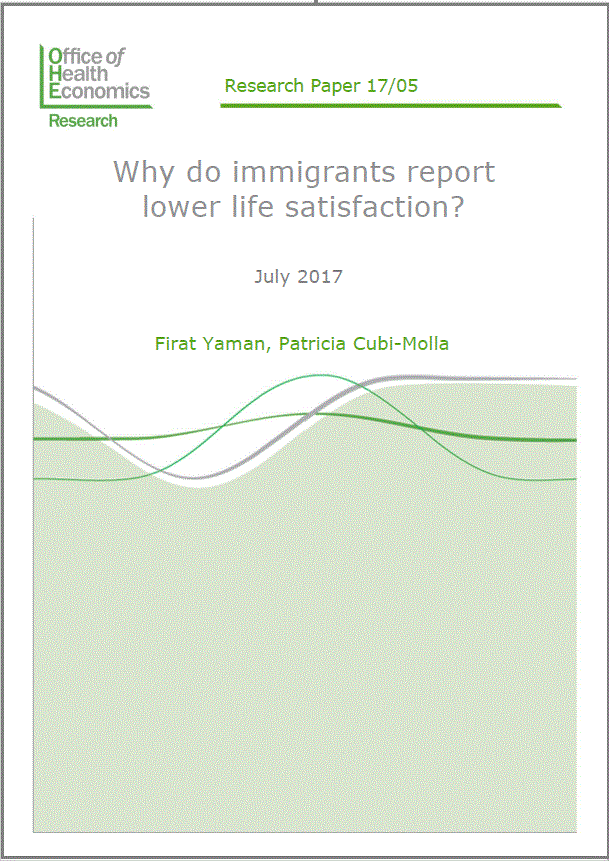Questions of happiness and well-being have increasingly been drawing the attention of health economists, with the understanding that its measures approximate quality of life, or at…
Questions of happiness and well-being have increasingly been drawing the attention of health economists, with the understanding that its measures approximate quality of life, or at any rate is one of its major components. Happiness in surveys is typically reported as a rating…
Questions of happiness and well-being have increasingly been drawing the attention of health economists, with the understanding that its measures approximate quality of life, or at any rate is one of its major components. Happiness in surveys is typically reported as a rating scale. For instance, life satisfaction question at the German Socio-Economic Panel (SOEP) states as follows: “How satisfied are you at present with your life as a whole?” The respondents can then answer this question with an integer number (or category) between 0 and 10, with 0 being the lowest and 10 the highest level of life satisfaction. It is typically assumed that for a particular latent value of life satisfaction, the individual will report the same category (e.g. “8”) regardless the time of the survey. However, recent research has questioned this, suggesting that the respondent may not use the same evaluation criteria when assessing her life satisfaction at different points in time. For instance, the same level of life satisfaction can be reported as 8 today but as 7 in a year from today, if the person is becoming more demanding. Therefore, a simplistic analysis between both responses would wrongly conclude that the respondent’s life satisfaction is decreasing.
A new OHE Research paper by Cubi-Molla and Yaman (2017) explores changes in the reporting behaviour of immigrants in Germany 1984-2010, in questions related to life satisfaction. Previous literature suggests that immigrants’ happiness tends to decrease over time compared to the natives’. The authors firstly explore the robustness and origin of this finding, and then propose a model that has the potential to decompose the effect of the number of years since migration into a true change in life satisfaction and a simple change in reporting behaviour. The model suggests that the existence and size of the reporting bias depend on how accurately individuals remember their past life satisfaction.

